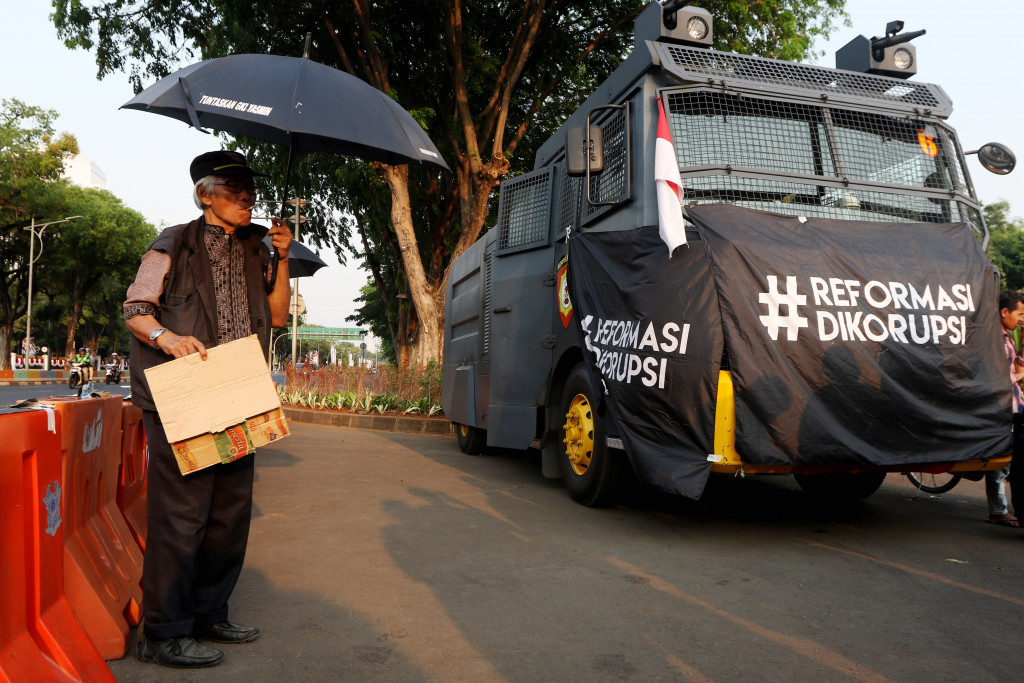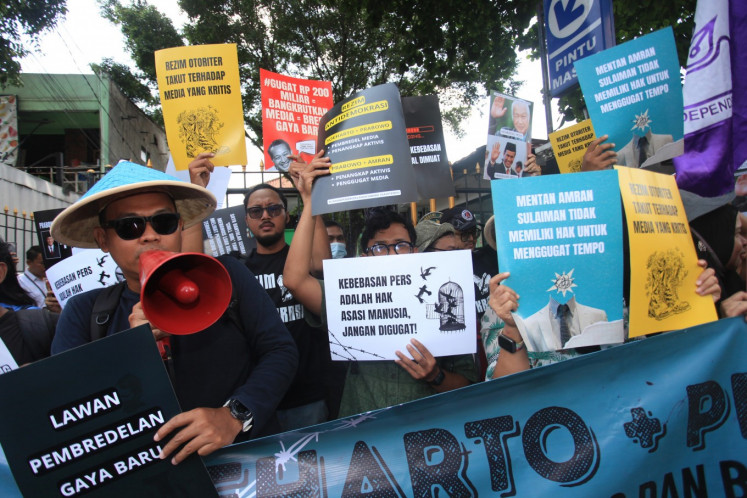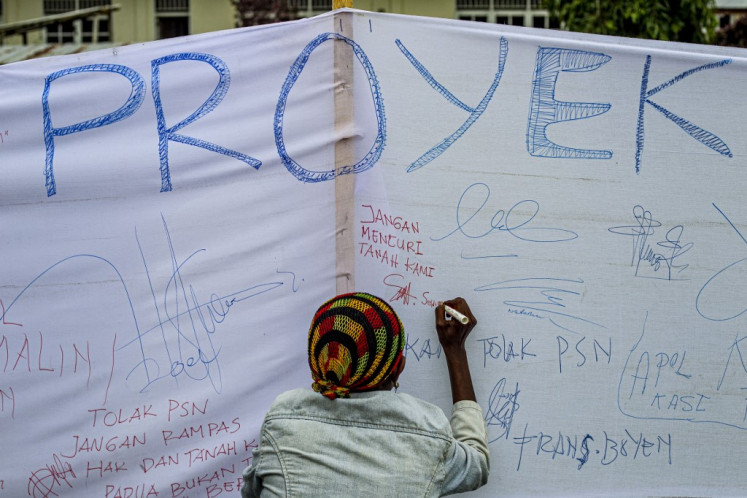Popular Reads
Top Results
Can't find what you're looking for?
View all search resultsPopular Reads
Top Results
Can't find what you're looking for?
View all search resultsIndonesia: weaponizing algorithms to silence dissent
Skewing the online discussion threatens media literacy.
Change text size
Gift Premium Articles
to Anyone
A
social media cyber war raged throughout Indonesia's past two presidential elections. The effects are still being felt by journalists years later — online discussions have been skewed to give the impression of a majority view, and those who disagree stay quiet.
Victims to what German political scientist Elisabeth Noelle-Neumann dubbed the 'spiral of silence' theory, citizens remain in the grip of fear and suppress their participation in public discussion.
Algorithms sort a user’s social-media feed based on relevance and interest, dragging them into echo chambers where the discussion grows more and more polarized. In Indonesia, cyber warriors became influential when they used algorithms to skew the popularity of topics.
In the past, the mass media could influence the public discussion by pushing a particular agenda, but now algorithms go further, distorting the public perception of the majority view.
Research has shed light on the tools used to connect like-minded users through algorithms. Cyber warriors — sometimes better known as paid 'buzzers', arguably managed by official campaign strategists — create highly specific social media feeds that amplify and systematically move talking points into the mainstream political discourse. One of the objectives is to silence the free press by orchestrating the talking points on social media.
To take some recent examples, the hashtag #TurunkanJokowi (“Take down Jokowi”) reached its peak on 7 April 2022, while #MahasiswaBergerak (“Student Move”) and #SayaBersamaJokowi (“I’m with Jokowi”) appeared on 9 April and reached their peak on 10 April. (‘Jokowi’ is the way Indonesian president Joko Widodo is popularly known.)
Topics such as #SayaBersamaJokowi were created by a cyber warrior and then discussed by social media users. When journalists try to cover the student movement (with the hashtag #MahasiswaBergerak), cyber warriors focus on the criticism of Jokowi. This creates a threatening environment for journalists as they offer a different narrative to that of #SayaBersamaJokowi in social media conversation.
Gen Xers and baby boomers rely heavily on Facebook, Instagram and WhatsApp to get their political information. This may close the age-related digital divide, but it does not close the gap in digital literacy. Previous generations’ lack of familiarity with the way algorithms work means they hesitate to voice their opinion if it appears to be a minority view. In this way the spiral of silence threatens the ability of journalists to play their usual role in shaping the public discussion.
Indonesia is known for its active internet users. Like-minded people engage in 'enclave deliberation' to discuss politics with each other on social media. However, this has not led to digital literacy, even in what is supposedly a literate generation. The mocking terms “panastak” (which comes from PAsukan NASi koTAK: a (cyber) army paid as much as a lunch box costs) and “panasbung” (similar to panastak, but cheaper still) mutated and gave rise to new terms for political supporters. Jokowi’s supporters were called “cebong”, and Prabowo supporters were called 'kampret”. Algorithms mean people who are 'friends' with Cebong mostly receive content that supports Jokowi, and vice-versa.
Social media algorithms adjust content and further strengthen the user’s perspective, and these aspects lead to polarisation of the political discussion. Echo chambers, assisted by algorithms, strengthen polarization through the creation of filter bubbles, and make opinions more extreme. Social media users have less complete and accurate information when they draw conclusions about what others feel and think.
The spiral of silence erodes trust in the news media and poses a challenge for journalists to maintain media integrity. Enclave deliberation means political supporters encounter little opposition to their views. If this is a contest between cyber troops and journalists, the algorithm is the judge – and it will always decide in favor of the cyber troops.
Algorithms have reinforced polarization and changed the way people discuss politics with one another. The challenge for journalists is to offer a more balanced narrative, while maintaining their integrity. Above all, media institutions have a duty to relentlessly call out government oppression. Digital media literacy in Indonesia also needs to improve, and this depends on the ability to assess the truth and see the full picture.
---
The writer is an Assistant Professor and researcher in the Department of Communication, Faculty of Social and Political Science, Universitas Airlangga, Surabaya, Indonesia. She holds several positions in the area of global engagement. Her work focuses on political marketing communication and social media marketing.
Originally published under Creative Commons by 360info™.











